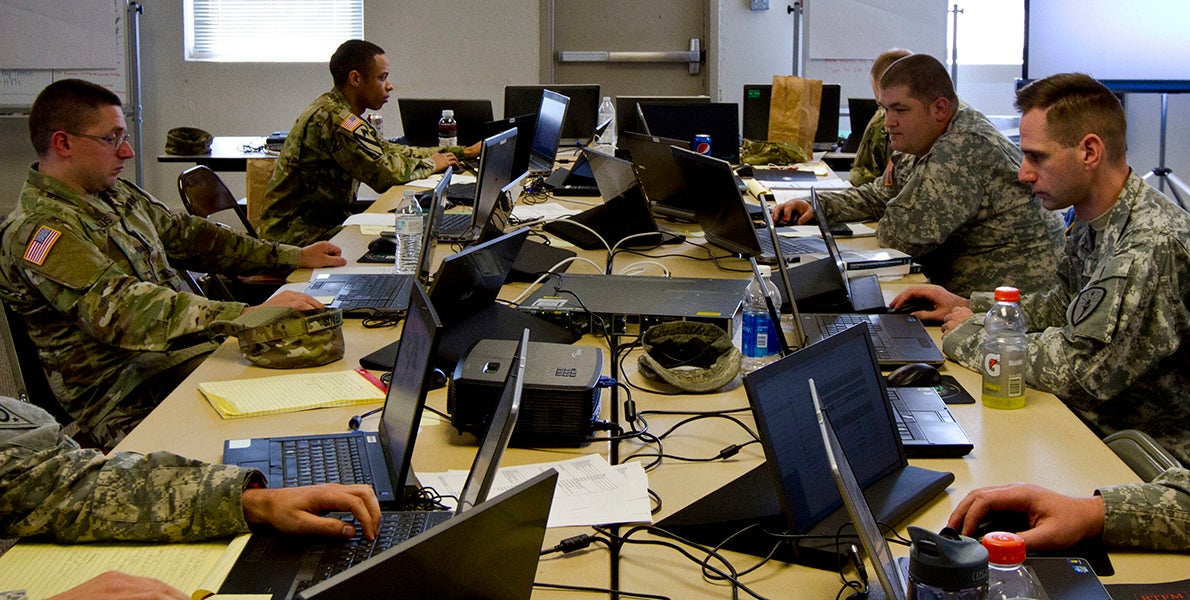Army Works to Attract, Retain Top Cyber Talent
Army Works to Attract, Retain Top Cyber Talent

The U.S. Army Cyber Command’s talent acquisition expert is raising awareness about the role of culture and meaningful work as the organization tries to attract and retain in-demand talent.
“Simple notions like believing one has a purpose, is contributing to it in a meaningful way, and is acknowledged when they do contribute, are key to the culture that we must create to retain and recruit top technical talent,” Nicole Camarillo, executive director of Cyber Command’s talent acquisition and management strategy, said in written testimony to the National Commission on Military, National and Public Service.
Some of the Army’s personnel can be overlooked when talent management changes are made, but talking to them about what they’re looking for in their careers is often what’s missing, Camarillo said.
The greatest needs she found among junior military members and civilians include senior mentorship, training to advance their skills, and access to resources that allow them to get their jobs done.
To meet these needs, Cyber Command partnered with Defense Digital Service, a Defense Department team in charge of recruiting private-sector technology talent. The recruits then work as government civilians for two years to share expertise and best practices.
“There are fundamental technical skills that are not inherent in federal government,” Camarillo said during a recent panel discussion with the commission. “Now we have to go to Silicon Valley to mine that talent. People with technical skills are needed in national security.”
The partnership created the JYN pilot program to give small, focused teams of cyber soldiers the opportunity to strengthen their capabilities with Defense Digital Service tech experts.
“These highly trained Army officers and soldiers work side by side with [Defense Digital Service] civilians in unclassified, collaborative, startup-like spaces using technology and tools found in the private sector,” Camarillo said.
While changing perspective on how to manage talent in an organization can be challenging, the need to keep pace with adversaries who prioritize technical talent is urgent, Camarillo said.
“Today, major conflicts will be decided by our ability to effectively use technology to defend ourselves from cyberattacks, in addition to the effective use of technology in traditional warfare,” Camarillo said. “The metrics for dominance in this domain do not require that we have the most people on mission, but the best and the brightest.”

